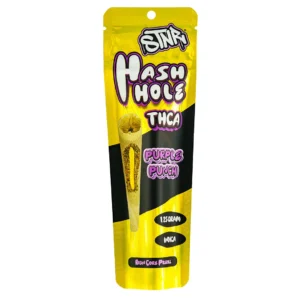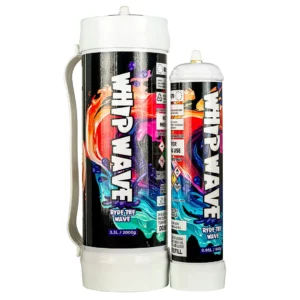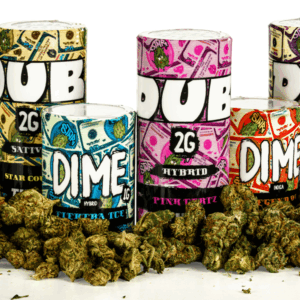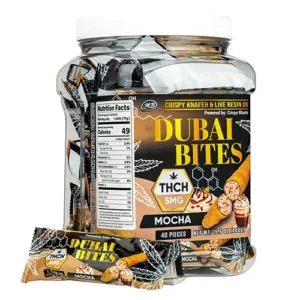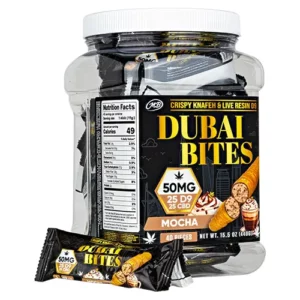In the rapidly evolving world of cannabis consumption, disposable THC vapes have become increasingly popular. These convenient, pre-filled devices offer a discreet and easy way to enjoy the effects of THC. But as with any product, questions about their longevity and shelf life inevitably arise. Do these pocket-sized powerhouses of cannabinoids have an expiration date? And if so, what happens when they reach it? This article dives deep into the world of disposable THC vapes, exploring their shelf life, signs of expiration, and how to maximize their lifespan. Whether you’re a seasoned vaper or new to the scene, understanding the ins and outs of THC vape expiration is crucial for ensuring a safe, enjoyable, and effective experience.
Do Disposable THC Vapes Expire?
The short answer is yes, disposable THC vapes do expire. However, the concept of expiration in this context is more nuanced than a simple “use by” date stamped on a carton of milk. To fully grasp the idea of expiration in THC vapes, we need to delve into the nature of the product itself and the various factors that influence its shelf life.
Understanding the shelf life of THC oil in disposable vapes
THC oil, the primary component in disposable vapes, is a complex mixture of cannabinoids, terpenes, and other compounds. Like any organic substance, it’s subject to degradation over time. The shelf life of THC oil can vary significantly, typically ranging from 6 months to 2 years, depending on various factors.
The primary process affecting THC oil’s longevity is oxidation. When exposed to oxygen, light, and heat, the chemical compounds in the oil begin to break down. This process can alter the oil’s potency, flavor, and overall quality. It’s worth noting that while the oil may not become harmful in the traditional sense of food spoilage, its effectiveness and enjoyment factor can certainly diminish.
Another aspect to consider is the hardware of the disposable vape itself. The battery life and integrity of the heating element also play a role in the overall lifespan of the product. Even if the THC oil inside remains viable, a dead battery or malfunctioning coil can render the vape unusable.
Factors that influence the expiry of disposable THC vapes
Several key factors can impact how long your disposable THC vape remains in optimal condition:
- Quality of ingredients: Higher-quality THC oils with fewer additives tend to have a longer shelf life.
- Storage conditions: Proper storage is crucial. Exposure to heat, light, and air can significantly shorten a vape’s lifespan.
- Packaging: The type and quality of packaging can affect how well the product is protected from external factors.
- Frequency of use: A vape that’s used regularly may not have time to degrade significantly before it’s finished.
- Manufacturing date: The fresher the product when purchased, the longer its potential shelf life.
Understanding these factors can help users make informed decisions about their purchases and storage practices. For instance, buying from reputable sources that provide manufacturing dates can give you a better idea of how long the product has been sitting on the shelf.
It’s also worth noting that the concept of expiration for THC vapes isn’t as strictly regulated as it is for food or pharmaceuticals. While some manufacturers may provide expiration dates, these are often estimates based on optimal conditions. The actual lifespan can vary based on the factors mentioned above.
In the next sections, we’ll explore how to identify signs of expiration in your disposable THC vape and what implications this might have for your vaping experience. Remember, while expiration doesn’t necessarily mean the product becomes dangerous, it can significantly impact its quality and effectiveness.
Signs of an Expired Disposable THC Vape
Knowing how to tell if a cart is expired is crucial for any THC vape user. While disposable THC vapes don’t come with clear-cut expiration dates like food products, there are several telltale signs that can indicate whether your vape has passed its prime. Let’s explore these indicators in detail.
Visual indicators: Color changes and consistency
One of the most apparent signs of an expired cart is a change in the color and consistency of the THC oil. Fresh, high-quality THC oil typically has a clear, golden amber hue. So, what color should THC oil be? If you notice your once-golden oil turning darker or developing a brownish tint, it might be a sign of oxidation and degradation.
Is it bad to smoke a brown cart? While it’s not necessarily dangerous, it’s generally not recommended. The change in color often indicates a decrease in potency and quality. You might also notice a cloudy THC cart, which can be another sign of degradation. This cloudiness occurs when the various compounds in the oil start to separate or crystallize.
The consistency of the oil can also change over time. Fresh oil should flow smoothly when you tilt the cartridge. If you notice the oil becoming thicker, more viscous, or even crystallizing, these could be signs of an expired cart.
Taste and odor: What changes to expect
As THC oil ages, its flavor profile can change significantly. Fresh, high-quality THC oil should have a clean, distinct taste that reflects its strain and terpene profile. However, an expired cart might produce vapor with a harsh, bitter, or simply “off” taste.
The odor of the vapor can also be a giveaway. Fresh THC oil typically has a pleasant, cannabis-like aroma. If you notice a burnt or chemical smell when vaping, it could indicate that your cart has expired or that the heating element is malfunctioning.
Vapor quality and performance degradation
The quality of vapor produced is another crucial indicator of your vape’s condition. A fresh, properly functioning THC vape should produce smooth, consistent vapor. If you notice that your vape is producing less vapor than usual, or if the vapor feels harsh or irritating when inhaled, these could be signs that your cart has expired.
Performance issues can also signal an expired or degrading cart. You might notice:
- Difficulty in drawing vapor through the mouthpiece
- Inconsistent heating or “hot spots” in the cartridge
- More frequent clogging of the cartridge
- A need to puff harder or longer to get the same effects
It’s important to note that while these signs can indicate an expired cart, they might also point to other issues such as a faulty battery or a manufacturing defect. If you’re unsure, it’s always best to err on the side of caution and consider replacing your disposable THC vape.
Remember, using an expired cart not only potentially diminishes your vaping experience but could also pose health risks. Always prioritize quality and safety in your THC vaping practices.
The Impact of Using an Expired Disposable THC Vape
As the popularity of THC vapes continues to rise, it’s crucial to understand the potential consequences of using an expired product. Many users wonder, “What happens if you smoke an expired cart?” Let’s delve into the potential health risks and efficacy concerns associated with using an expired THC vape.
Potential health risks and effects on the body
Using an expired THC cart can potentially lead to several health issues:
- Respiratory irritation: As the oil in an expired THC cart degrades, it may produce harsher vapor that can irritate your throat and lungs. This irritation can lead to coughing, wheezing, or even more severe respiratory problems.
- Increased risk of contamination: Over time, the protective elements in the vape oil can break down, potentially allowing harmful bacteria or mold to grow. Inhaling these contaminants could lead to respiratory infections or other health issues.
- Exposure to degraded chemicals: The compounds in THC oil can break down into potentially harmful substances when exposed to heat, light, or oxygen for extended periods. Vaping these degraded chemicals might increase the risk of adverse reactions.
- Allergic reactions: As the oil composition changes, it may trigger allergic reactions in some users, leading to symptoms like rashes, itching, or difficulty breathing.
- Headaches or nausea: Some users report experiencing headaches or nausea after using an expired THC cart, possibly due to the altered chemical composition of the oil.
It’s important to note that while these risks exist, the severity can vary depending on factors such as the extent of degradation and individual sensitivity. However, it’s always better to err on the side of caution when it comes to your health.
Efficacy: Do expired vapes lose their potency?
One of the most common questions about expired THC carts is whether they lose their potency over time. The short answer is yes, they do.
THC, the primary psychoactive compound in cannabis, is known to degrade over time, especially when exposed to heat, light, and oxygen. This degradation process can significantly reduce the potency of an expired THC cart. Here’s what you might experience:
- Reduced effects: As the THC content decreases, you may find that you need to consume more to achieve the desired effects. This not only diminishes the user experience but can also lead to overconsumption of degraded product.
- Altered effects: The degradation of THC can lead to the formation of CBN (Cannabinol), which has different effects than THC. This means that using an expired cart might produce effects different from what you’re expecting.
- Inconsistent dosing: As the oil degrades unevenly, you might experience inconsistent effects from one puff to the next, making it difficult to manage your dosage effectively.
- Waste of product: Using an expired THC cart often means you’re not getting the full value of your purchase, as a significant portion of the active compounds may have already degraded.
It’s worth noting that the rate of potency loss can vary depending on storage conditions and the initial quality of the product. However, as a general rule, the longer a THC cart is left unused, the more likely it is to lose its potency.
In conclusion, while using an expired THC cart may not always lead to immediate or severe health issues, it can significantly impact both the safety and efficacy of your vaping experience. The potential health risks, combined with the loss of potency, make it advisable to avoid using expired THC carts. Always prioritize your health and safety by using fresh, properly stored products from reputable sources.
Proper Storage Practices to Extend Shelf Life
Knowing how to store carts properly is crucial for maintaining the quality and extending the shelf life of your disposable THC vapes. As Geoffrey Moore aptly puts it, “Without big data analytics, companies are blind and deaf, wandering out onto the web like deer on a freeway.” While this quote refers to data analytics, it equally applies to understanding the best practices for THC vape storage. Let’s explore how to keep your vapes in optimal condition and avoid common storage pitfalls.
Best storage conditions for disposable THC vapes
To maximize how long a THC disposable lasts, consider the following storage practices:
- Temperature control: Store your vapes in a cool, dry place. Ideal temperature range is between 60-70°F (15-21°C).
- Light protection: Keep vapes away from direct sunlight or bright artificial light. UV rays can degrade THC and other cannabinoids.
- Air-tight containers: Use air-tight containers to minimize exposure to oxygen, which can accelerate degradation.
- Upright position: Store vapes vertically to prevent leakage and ensure even oil distribution.
- Humidity control: Aim for a relative humidity of 59-63% to prevent mold growth and maintain oil consistency.
- Separate storage: Keep vapes away from other strong-smelling substances to prevent flavor contamination.
- Child-proof location: Always store out of reach of children and pets for safety reasons.
By following these guidelines, you can significantly extend the shelf life of your THC vapes, potentially from the typical 6-12 months to up to 2 years in optimal conditions.
Common storage mistakes and how to avoid them
Avoiding these common mistakes can help preserve the quality of your THC vapes:
- Refrigeration or freezing: While it might seem logical to refrigerate vapes, extreme cold can cause the oil to thicken and potentially damage the cartridge. Avoid storing in refrigerators or freezers.
- Car storage: Never leave vapes in your car. The temperature fluctuations can degrade the oil quickly and potentially damage the battery.
- Pocket storage: Carrying vapes in your pocket exposes them to body heat and potential damage. Use a protective case instead.
- Exposure to heat sources: Keep vapes away from radiators, direct sunlight, or other heat sources that can cause the oil to degrade rapidly.
- Horizontal storage: Storing vapes on their side can lead to uneven oil distribution and potential leakage. Always store upright.
- Loose cap storage: Ensure the mouthpiece or cap is securely fastened to prevent air exposure and potential contamination.
- Mixed storage: Avoid storing different strains or types of vapes together to prevent flavor mixing and potential confusion.
By being mindful of these storage practices, you can significantly extend the life of your THC vapes and ensure a consistent, high-quality experience each time you use them. Remember, proper storage not only preserves potency but also maintains the safety and efficacy of your product. Treat your THC vapes with care, and they’ll reward you with longer-lasting, more enjoyable experiences.
Tips for Maximizing the Use of Your Disposable Vape Before It Expires
Efficient usage strategies to prevent waste
- Consistent use: Regular, moderate use of your disposable vape can help prevent the oil from degrading over time. If you’re an occasional user, consider opting for smaller disposables to reduce the risk of expiration before you finish the product.
- Proper inhalation technique: Take slow, steady draws from your vape instead of quick, sharp inhales. This method ensures more efficient vaporization and can help extend the life of your disposable.
- Temperature control: If your disposable vape has adjustable temperature settings, use the lowest effective temperature. Lower temperatures can help preserve the oil’s integrity and extend the device’s battery life.
- Avoid overheating: Allow your vape to cool down between sessions. Overheating can degrade the oil faster and potentially damage the device.
- Monitor your usage: Keep track of how long a THC disposable lasts for you personally. This can help you make more informed purchasing decisions in the future, reducing the likelihood of having unused product expire.
- Rotate your stock: If you have multiple disposable vapes, use them in rotation. This ensures that no single device sits unused for too long, potentially expiring before you get to it.
- Share responsibly: If you find you’re not using your vape as quickly as anticipated, consider sharing with a trusted friend (where legal) to prevent waste.
- Understand the signs of expiration: Familiarize yourself with the signs of an expiring vape, such as changes in color, consistency, or flavor. This knowledge can help you use the product before it degrades significantly.
- Plan your purchases: Buy disposable vapes in quantities that align with your usage habits. It’s better to purchase smaller amounts more frequently than to stock up and risk expiration.
- Consider alternatives: If you find that disposable vapes often expire before you can finish them, consider switching to refillable cartridges or other forms of consumption that might better suit your usage patterns.
Remember, the goal is to balance enjoyment with efficiency. By implementing these strategies, you can maximize the use of your disposable THC vape, ensuring you get the full value from your purchase while minimizing waste.
It’s important to note that while these tips can help extend the usable life of your disposable vape, they don’t indefinitely prevent expiration. Always prioritize safety and quality in your consumption habits. If you’re unsure about the condition of your vape, it’s better to err on the side of caution and dispose of it properly rather than risk using an expired product.
Frequently Asked Questions About Disposable THC Vapes and Expiry
As the popularity of disposable THC vapes continues to grow, so does the number of questions surrounding their use and longevity. Here are some of the most frequently asked questions about disposable THC vapes and their expiration:
- How long do disposable THC vapes typically last? The lifespan of a disposable THC vape can vary depending on usage patterns and storage conditions. On average, they can last anywhere from a few days to several weeks for regular users. For occasional users, they might last a month or more.
- Can I tell if my THC vape has expired without opening it? While it’s challenging to determine expiration without opening the vape, you might notice changes in the color of the oil through the cartridge. If it appears significantly darker or has visible separation, it might be past its prime.
- Is it safe to use an expired THC vape? It’s generally not recommended to use an expired THC vape. While it may not be immediately harmful, the quality and potency of the product can be significantly compromised, potentially leading to a less enjoyable or even unpleasant experience.
- How should I dispose of an expired THC vape? Proper disposal is important. Check local regulations, as some areas have specific guidelines for disposing of cannabis products. Generally, remove the battery (if possible) and dispose of it separately. The cartridge should be emptied and cleaned before disposal.
- Can I extend the life of my THC vape by refrigerating it? Refrigeration is not recommended for THC vapes. The cold can cause the oil to thicken and potentially damage the cartridge. Instead, store your vape in a cool, dark place at room temperature.
- Why does the color of my THC oil change over time? Color changes are often due to oxidation. As the oil is exposed to air, heat, and light, it can darken. This is a natural process but can indicate that the product is aging.
- Does the potency of THC decrease as the vape ages? Yes, THC can degrade over time, especially when exposed to heat, light, and air. This degradation can lead to a decrease in potency and changes in the effects of the product.
- Can I refill a disposable THC vape? Disposable THC vapes are designed for single use and are not meant to be refilled. Attempting to refill them can lead to leaks, malfunctions, and potential safety hazards.
- How often should I replace my disposable THC vape? This depends on your usage. Heavy users might replace their vape weekly, while occasional users might keep the same vape for a month or more. Always replace your vape if you notice any changes in taste, vapor production, or oil appearance.
- Can temperature fluctuations affect my THC vape’s lifespan? Yes, extreme temperature changes can negatively impact your vape. Avoid leaving it in very hot or cold environments, such as a car, as this can degrade the oil and potentially damage the device.
Remember, these answers are general guidelines. Always refer to the specific instructions provided by the manufacturer of your THC vape for the most accurate information. When in doubt about the safety or quality of your product, it’s best to err on the side of caution and consider replacing it.
Concluding Remarks: The Importance of Awareness and Responsible Usage
As we wrap up our exploration of disposable THC vapes and their expiration, it’s crucial to emphasize the importance of awareness and responsible usage. In today’s data-driven world, information is key to making informed decisions about our consumption habits. As Piyanka Jain aptly puts it, “Everybody needs data literacy, because data is everywhere. It’s the new currency, it’s the language of the business.” While Jain’s quote refers to business, it’s equally applicable to our personal choices, especially when it comes to THC vape usage.
Being aware of the factors that influence the lifespan of your disposable THC vape empowers you to make better decisions about purchase, storage, and usage. This knowledge not only helps you maximize the value of your product but also ensures a safer, more enjoyable experience.
Responsible usage goes hand in hand with awareness. Understanding the signs of expiration, proper storage techniques, and potential risks associated with using expired products allows you to consume THC responsibly. It’s not just about getting the most out of your purchase; it’s about prioritizing your health and safety.
Moreover, responsible usage extends beyond personal consumption. It involves proper disposal of expired or unused vapes, which is crucial for environmental protection and public safety. By being mindful of how we handle these products throughout their lifecycle, we contribute to a more sustainable and responsible cannabis industry.
As the cannabis market continues to evolve, staying informed about best practices for THC vape usage becomes increasingly important. The landscape of regulations, product innovations, and scientific understanding is constantly changing. Keeping yourself updated with reliable information ensures that you can adapt your habits to align with the latest recommendations and standards.
In conclusion, the key takeaway is this: knowledge is power when it comes to THC vape usage. By staying informed, practicing responsible consumption, and being mindful of expiration and storage, you can enhance your experience while minimizing potential risks. Remember, the goal is not just to enjoy the benefits of THC, but to do so in a way that’s safe, effective, and respectful of both yourself and the broader community.

